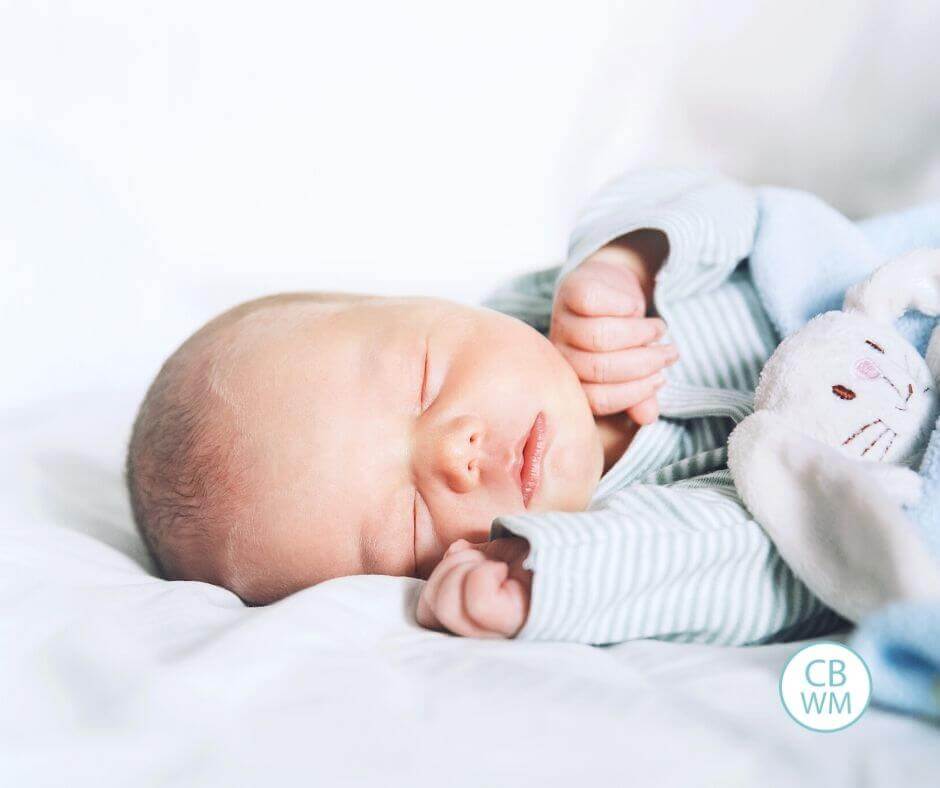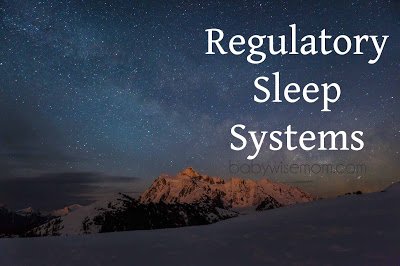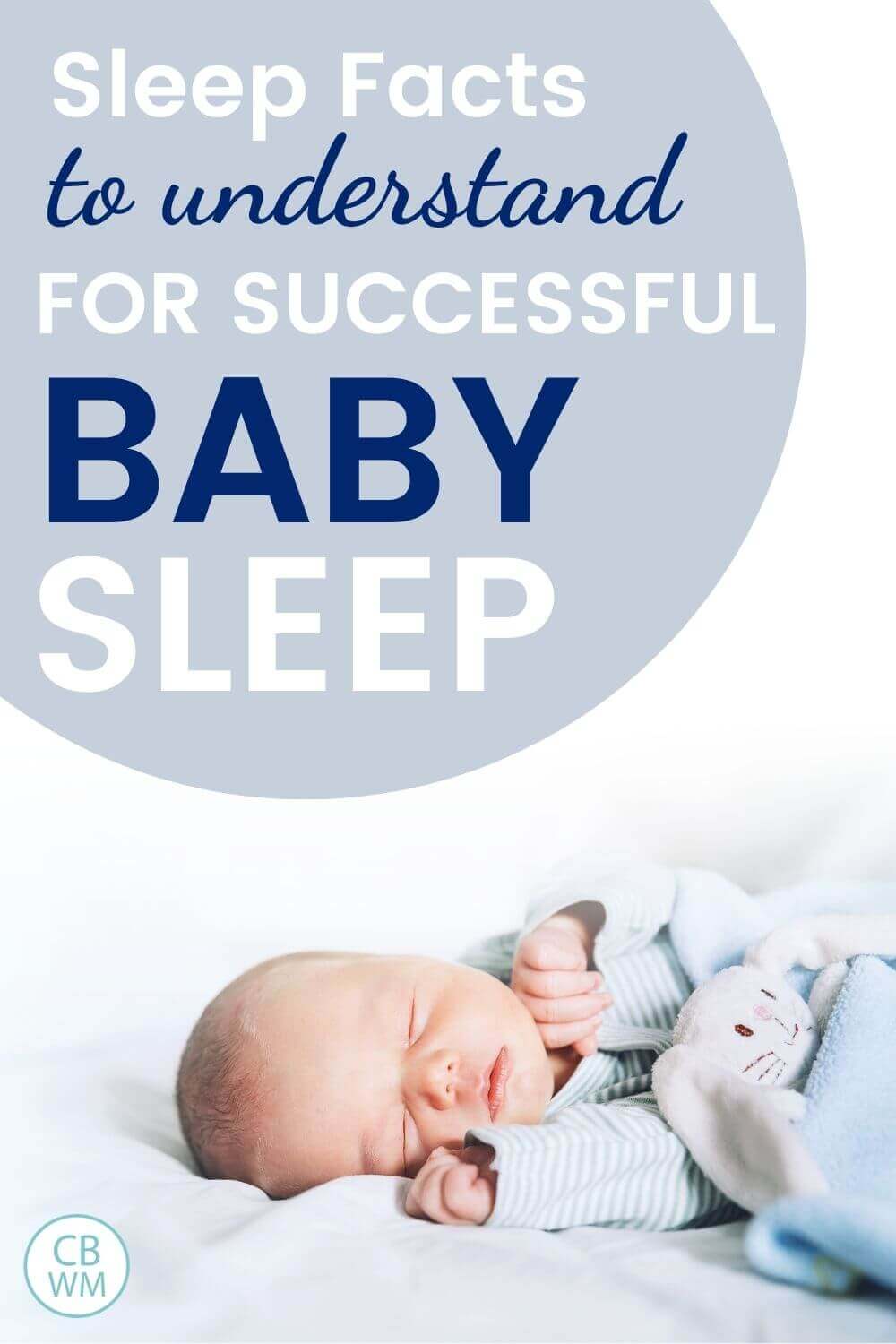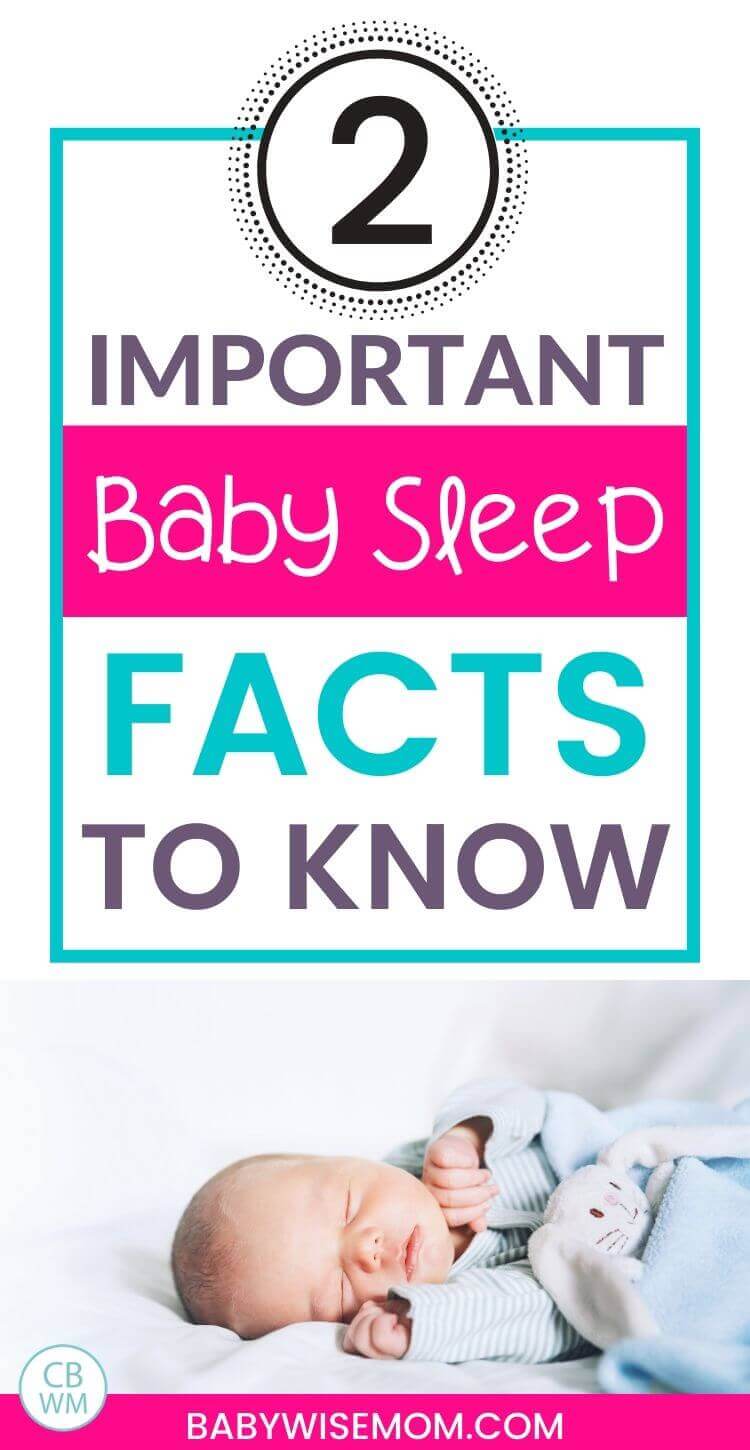Learn about two different sleep facts that can help you help your baby and kids sleep well! These are simple and scientifically backed.

We all love a quick checklist that we can follow to achieve a goal, especially a goal of getting baby to sleep well.
While there are great checklists to look at, there are also many things it is invaluable to understand about sleep. Babies, toddlers, kids, and even us adults face sleep issues frequently, and understanding the science behind sleep enables you to solve those issues quickly and independently.
In Healthy Sleep Habits, Happy Child
These are Homeostatic Control Mechanism (which I shall henceforth refer to as HCM) and Circadian Timing System or Internal Timing System (which I shall refer to as circadian rhythm because that is how I first learned it).
The information in the book on these two topics is not extensive; it is only two paragraphs long. But there have been tons of studies on the two topics and understanding them can really help you get successful sleep for your kids (and you too!).

Post Contents
Homeostatic Control Mechanism Explained
HCM basically is the body’s function for making up for lost sleep. The longer you are awake, the longer your body will try to sleep. Your body wants to restore lost sleep. Weissbluth says this is a system we cannot control, much like sweating. If we are hot, we will sweat.

My personal commentary on HCM. First of all, the term HCM isn’t a great one. There are lots of homeostatic control mechanisms out there. The human body is full of them.
The liver, the kidneys, the brain…the brain is full of them :). Homeostasis is basically the body working to keep things stable in the body despite external forces. If homeostasis fails, things like diabetes, dehydration, hypoglycemia, etc. can occur.
I think the way Weissbluth refers to HCM makes it sound like, “If your baby needs to sleep, he will. His body will make up for it. Plus, if he is awake for a long time, he will sleep for a long time.”
Wrong!
There is much throughout the book to negate that idea, but his info on HCM definitely leads you in that direction. If you read the whole book, you would know that you can’t keep baby up and realistically get more sleep.
Many parents come to this idea to keep baby awake so baby will sleep better at night on their own. They keep baby awake longer in order to try to get longer naps or more nighttime sleep out of the baby.
But we know sleep begets sleep, and creating an overly tired baby causes major sleep problems.
>>>Read: Sleep Begets Sleep? The Truth About Baby Sleep
Here is a better way of looking at HCM in sleep. The HCM drives the body to sleep. As you are awake, you build up a need for sleep–a sleep debt.
The longer you are awake, the more your body wants to sleep. So the HCM doesn’t mean you will definitely sleep when needed. It is a way for your body to tell you to sleep. But not all people, babies included, listen to this drive.
You can’t look at HCM by itself to figure out sleep needs. Some bodies are likely better at self-regulating need for sleep. They have better homeostatic control, just like some bodies are better at managing sugar than others.
>>>Read: How to Fix Your Child’s Sleep Deficit
You also have to consider how long it has been since the person slept and know if it will be the right length for good sleep….optimal waketime.
And we also have circadian rhythm to consider.
Whew! Feeling a bit of information overload? Take a deep breath. Get a drink.
Let’s keep going.
HCM Takeaway
The takeaway you really need to understand is the length of time your baby or child is awake will directly impact his/her ability to sleep. It is a biological response. You can’t control what the biological need is so you need to just figure it out and go with it.

Circadian Rhythm Explained
Circadian Rhythm is very fascinating. Circadian rhythm and HCM are pretty interdependent, so it is helpful to talk about both together.
The Circadian Rhythm is set to sunlight. It uses the sun to make sure the body is sleeping when it should and that you are having correct stages while sleeping.
The circadian rhythm is about 24 hours (circadian is based on a Latin word that translates to “about a day”).
Fun fact, Weissbluth at some point in his book points out that the circadian rhythm is actually 25 hours and that is why a baby will have off days over so often. This is true, but true only with no environmental cues. With environmental cues, the clock is a bit longer than a 24 hour day.
Circadian Rhythm in Babies
In babies, the circadian rhythm changes constantly–which means sleep needs change constantly. This is especially true during the first few months. Just when you figure things out, it changes.
The circadian rhythm is present in all animals that tells them when to do things. It affects eating patterns, sleeping patterns, and migration patterns, to name a few.
A Circadian Rhythm is your internal clock that tells you when to be tired and when not to be tired. Note that a key component, probably the key component, is light. Light=wake up. Dark=sleep. So, changes to your light exposure will impact your natural rhythm.
Sunlight Impacts Your Sleep
You know how I often ask you about the sunlight during summer months when you have sleep problems with your children? It is because sunlight impacts sleep.
This is also why you want to keep lights dim as you are getting ready for bed. This is why most experts recommend no TV or other electronics close to bedtime for any aged child.
This is why you keep lights dim if you need to visit your child in the night, whether it be for a feeding, diaper change, or comforting after a nightmare.
This is why it is hard to get a child to go to bed during the summer. Children do not want to go to bed when it is light outside. It can even be hard to fall asleep in the summer when the days are long.
This is why we have dark blinds on our kids’ windows. At bedtime, we close the blinds and it is dark enough for nighttime no matter what time it is. It also helps keep the sun out in the morning. Any light exposure in the morning will speed up the time the body naturally wakes up.
Our blinds aren’t perfect; Brayden got up much earlier in the summer than he did the winter as a toddler, preschooler, and child. But they helped a lot.
Other Things that Impact Circadian Rhythm
Light isn’t the only environmental factor on your circadian rhythm.
There are also social cues that impact your natural sleep patterns. Mealtimes impact the circadian rhythm (which, by the way, helps me argue against Weisbluth’s argument that food does not affect sleep patterns).
You also have temperature, noise, routines, pain, and medication.
I love circadian rhythm so much that I have talked about it more in this post:
Circadian Rhythm Explained and How It Impacts Sleep
Conclusion
There is so much to sleep! It is no wonder it takes so much time and effort to get our babies sleeping well consistently. You need time for the body to adjust. In fact, the circadian rhythm doesn’t really emerge until 2-3 months old.
This is the age when you really start to see an impact from light cues and feeding patterns and sleep routines. Now, we all know we can establish good sleep patterns before this age. But this is the age when things really start to self-regulate, so there is less mom-regulated. This is right about the time babies tend to get easier to take care of.
Okay, so there is some of the science behind sleep. It isn’t quite as simple as we would like it be, but understanding it can help you help your baby to sleep better.
RELATED BLOG LABELS
- Why Even Bother to Have Naps?
- How Sleep Benefits the Brain and Physical Development
- Best Baby Sleep Training Books to Get Baby Sleeping
- Circadian Rhythm Explained and How It Impacts Sleep
 Healthy Sleep Habits, Happy...Shop on Amazon
Healthy Sleep Habits, Happy...Shop on Amazon


